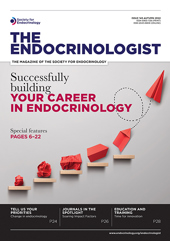Our Early Career Grants of up to £10,000 aim to support Early Career Members to undertake research. With multiple grants awarded at each of the two annual deadlines, many of our members have taken advantage of this funding to get their research careers off to a flying start. We caught up with three of our 2021 grant awardees to learn how the funding has helped their careers.
ROBERT ALLAN University of Central Lancashire
THE PROJECT The influence of acute and chronic low temperature on local bone mineral density and systemic markers of bone health
"My aim was to examine the influence of cold temperatures on markers of bone health, both locally on bone mineral density and systemically via targeted humoral analysis. The funding enabled me to secure necessary equipment for this and future research.
"Despite some unexpected setbacks, namely a global pandemic, I expect to complete my data collection very soon, with the ultimate hope of using it to support my further work in this area and assist in future grant capture.
"It may be too early to tell the full impact that this grant has had on my career, but I have already seen greater recognition for my work within my institute. Offers I’ve had to present my research plan, contribute to research communities and become involved in collaborative projects have certainly increased. The grant has already opened doors and I have a strong feeling that may continue.
"The grant allows for an excellent learning experience along the path towards becoming an independent researcher. I learned processes around building an application and co-ordinating it with the funder. It has provided me with the confidence to write and submit future grants."
MILANO MUSO Institute of Metabolic Science, Cambridge
THE PROJECT Testing deleterious SIRT6 variants for effects on glucose uptake and IGF-1 levels in humans
"My aim was to identify carriers of deleterious mutations in SIRT6, using UK Biobank data, to investigate their associations with ageing and metabolic phenotypes.
"Most of the funding has been used on reagents and assay development. Some funds have been reserved for a future RNA-seq experiment. Although I’ve met some of the funding aims, developing the assays and identifying mutations of interest, more investigation is still needed to confirm or reject our hypothesis.
"I’ve also been able to divert some of the funds to a related project which is investigating dominant negative mutations in PPARD and low density lipoprotein–cholesterol levels.
"Although not yet resulting in a publication, this grant has taught me a lot about planning experiments and, most importantly, allowed me to explore a new field – the biology of ageing. I hope to continue in this research area and, through this project, I have developed a better idea of the most promising questions to address in my future research.
"The application process is great practice for experiment and cost planning for larger grants. £10,000 is sufficient to validate one or more hypotheses and one year is a good time to generate solid results."
PHYLLIS PHUAH Imperial College London
THE PROJECT Investigating the role of the coeliac–superior mesenteric ganglia in pancreatic hormone release and glucose homeostasis
"I aimed to investigate the role of gut sympathetic neuronal populations in pancreatic hormone release and glucose homeostasis by establishing targeted modulation of coeliac–superior mesenteric ganglia activity in rodent models, using chemogenetic techniques.
"Although the project has involved more optimisation than anticipated, I am generating pilot data to support future studies and hopefully an eventual publication. As a final year PhD student, there are few grants that I am eligible for, so the opportunity to apply for and manage this Early Career Grant has been great for my professional development.
"The grant has funded me to develop microsurgical skills and provided me with a track record of winning competitive funding, as well as developing my project management skills. Through this project, I have also been able to network with other researchers in the field, which has been helpful in my search for post-doctoral researcher positions."
The next application deadline is 9 November 2022 - find out more and apply








